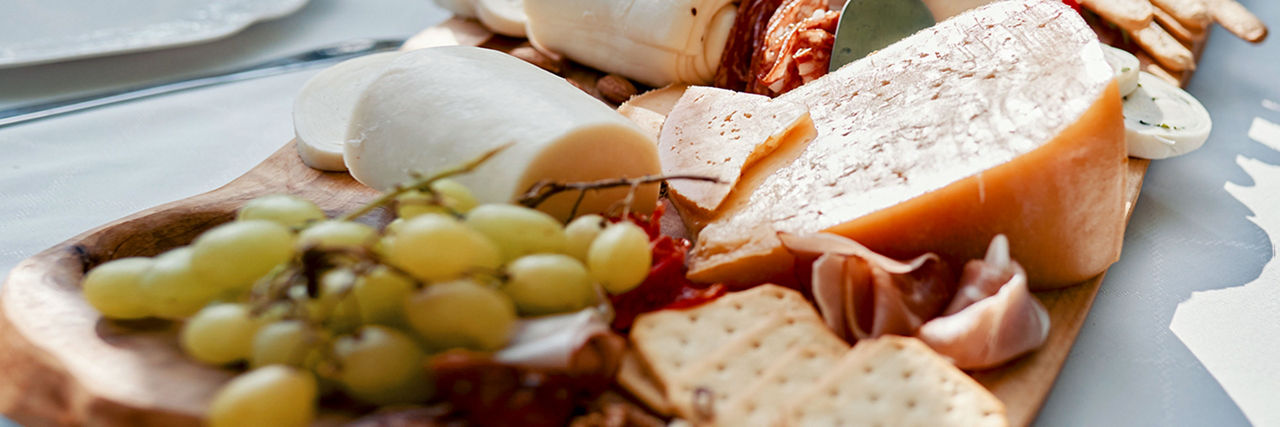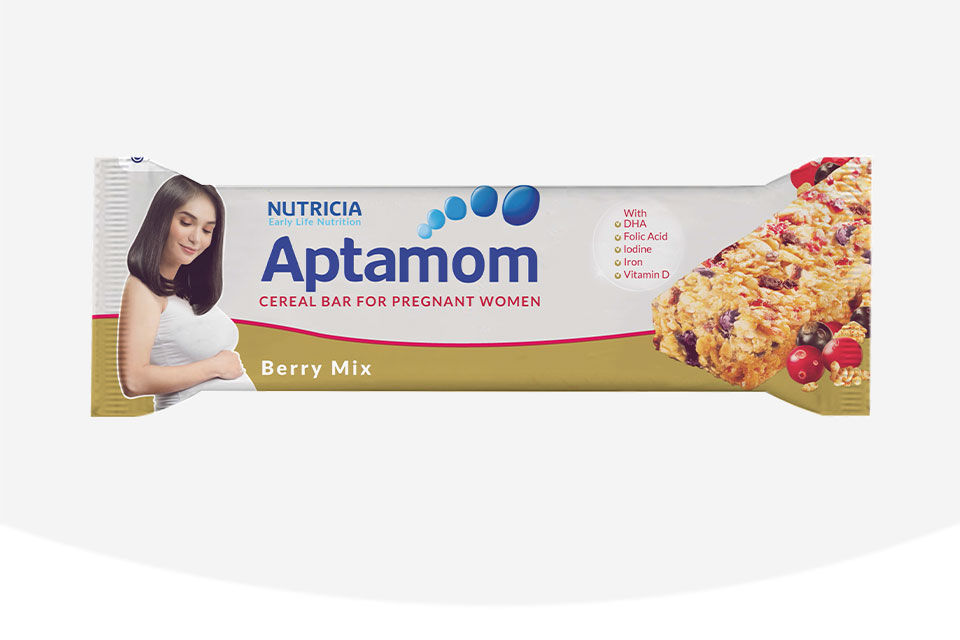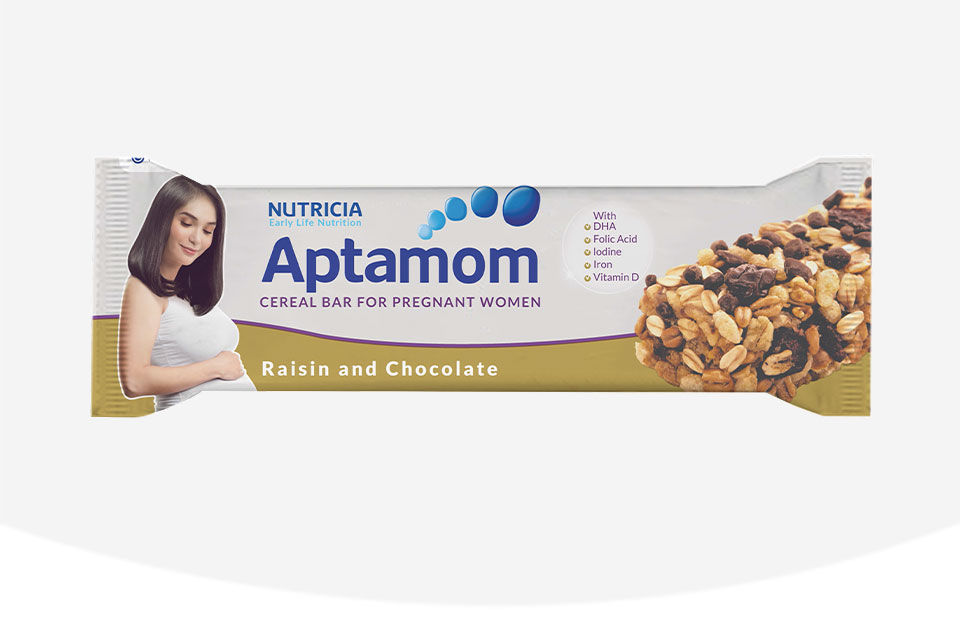Danone Specialized Nutrition (Malaysia) Sdn Bhd supports exclusive breastfeeding for your infant’s first six months of life. After six months of age, infants should receive age-appropriate complementary foods while breastfeeding continues for up to two years of age or beyond. Consult your doctor before deciding to use infant formula or if you have difficulty breastfeeding.
The Foods You Should Avoid During Pregnancy
Consuming certain food and beverages can harm or lead to undesirable consequences to the unborn child. This could be due to toxins or food infection consumed by the mother. Find out which foods you should avoid as well as foods and drinks to be mindful of during your pregnancy.
What to avoid during pregnancy?
As well as being unpleasant for you, food poisoning can put your little one’s health at risk1. For this reason, it’s important to pay close attention to your diet when you're pregnant, taking extra care with food preparation and avoiding foods associated with the risk of listeriosis – a type of food poisoning2.
Listeriosis is caused by listeria monocytogenes, a bacterium found naturally in the environment, and present in soil and water2. It can be found on products that may have been exposed to soil or water, from animals carrying the bacteria like meat and dairy products, as well as in processed foods like soft cheeses and cold cured cuts of meat2.
The following foods should be avoided during pregnancy1
Alcohol
Despite the well-known health risks for the little one, it is advisable to abstain from alcohol, even if someone proposes a toast to you. Although there is no clear recommendation on alcohol intake for pregnant women and there may be voices within your social circle that claims that a glass of alcohol might not serve any harm to your children, but it is definitely the best decision to entirely refrain from alcohol. The reason behind is that alcohol is a form of cytotoxin that could attack the brain and nerve cells of your little one at any time during pregnancy.
Nicotine
Habits die hard; some women may simply abandon their vices overnight during their pregnancy. Remember that every cigarette will lead to your little one taking in “passive smoke”. It would be a good opportunity to become a non-smoker and remain thereafter, even after the birth of your little one.
Dairy products and eggs
- You should avoid all dairy products made from raw milk during your pregnancy as they could contain listeria and trigger food poisoning caused by bacteria. Ensure that you make a shopping note to ask if the open products at the counter or at the weekly market are “made with raw milk”, as a form of precaution. Avoid the following products: soft cheeses even though they are made from pasteurised or heat-treated milk, as well as all blue cheese and cheese with lubricated surface. Firm, ripened hard cheese made from heat-treated milk may seem harmless but you should always cut off the rind before consumption.
- You should only consume hard-boiled eggs. Raw or semi-cooked eggs could contain salmonella, and it is safer to avoid all foods that are made with raw eggs such as desserts, mayonnaise sauces and baked goods.

Meat and sausage
- Avoid raw foods of animal origin.
- Did you know that you should avoid raw animal foods in general to be protected from foodborne infections? Animal products such as meat, fish, eggs, and dairy products made from raw milk where bacteria or parasites such as Listeria, can transmit bacteria to your little one leading to serious consequences. In addition, this can weaken the hormonal changes during pregnancy as well as your immune system to allow you to be more susceptible to infections such as Listerosis.
- Be sure not to consume excessive amounts of animal innards which contain abundance of vitamin A, as an overdose of vitamin A during pregnancy can lead to stunted growth, and cause damage to the skin, liver and eyes. You can safely consume all other meats as long as they are well cooked.
- Remember to avoid raw meat dishes such as steak, roast beef and smoked ham or sausages and salami. Any consumption of raw meats can lead to infectious disease caused by parasites, particularly harming the little one in the first trimester of the pregnancy. Only if the infection was detected before pregnancy, the little one is usually protected by the maternal immune system. However, it is not wise to take the risk and consume raw meat products during your pregnancy.
Soft Drinks
Coffee, black tea and caffeinated soft drinks such as Cola are allowed during pregnancy, but only in moderation (2 – 3 cups of coffee per day). Black and green tea contains caffeine and tannins which interfere with iron absorption. A useful tip would be to leave these drinks between your meals.
Vegetables, fruits and salads
Plant foods, including herbs that are not heated, should be washed thoroughly before consumption to prevent any possible infection.
Food hygiene tips
Safe preparation of food is vital to prevent food related illnesses during pregnancy. Best practice is to always wash your hands before and after preparing food, and to clean fruit and vegetables thoroughly. Always ensure that any ready meals, reheated food or restaurant dishes are piping hot all the way through before you eat them, too1.
Reference
1. NHS. Foods to avoid during pregnancy [Online]. 2017. Available at: www.nhs.uk/chq/Pages/917.aspx?CategoryID=54 [Accessed February 2020]
2. NHS. Foods to avoid during pregnancy [Online]. 2017. Available at: www.nhs.uk/chq/Pages/917.aspx?CategoryID=54 [Accessed February 2020]
3. https://www.cdc.gov/listeria/symptoms.html
4. https://www.cdc.gov/listeria/risk-groups/pregnant-women.html
Aptamom Bar: Maternal Cereal Bar
Aptamom bar is a ready-to-eat, delicious cereal bar for pregnant mothers. It provides pregnant mothers a convenient way to obtain the essential nutrients and vitamins that are needed more of during pregnancy.

Connect with our team of experts
We provide advice and support for you on your parenthood journey.



